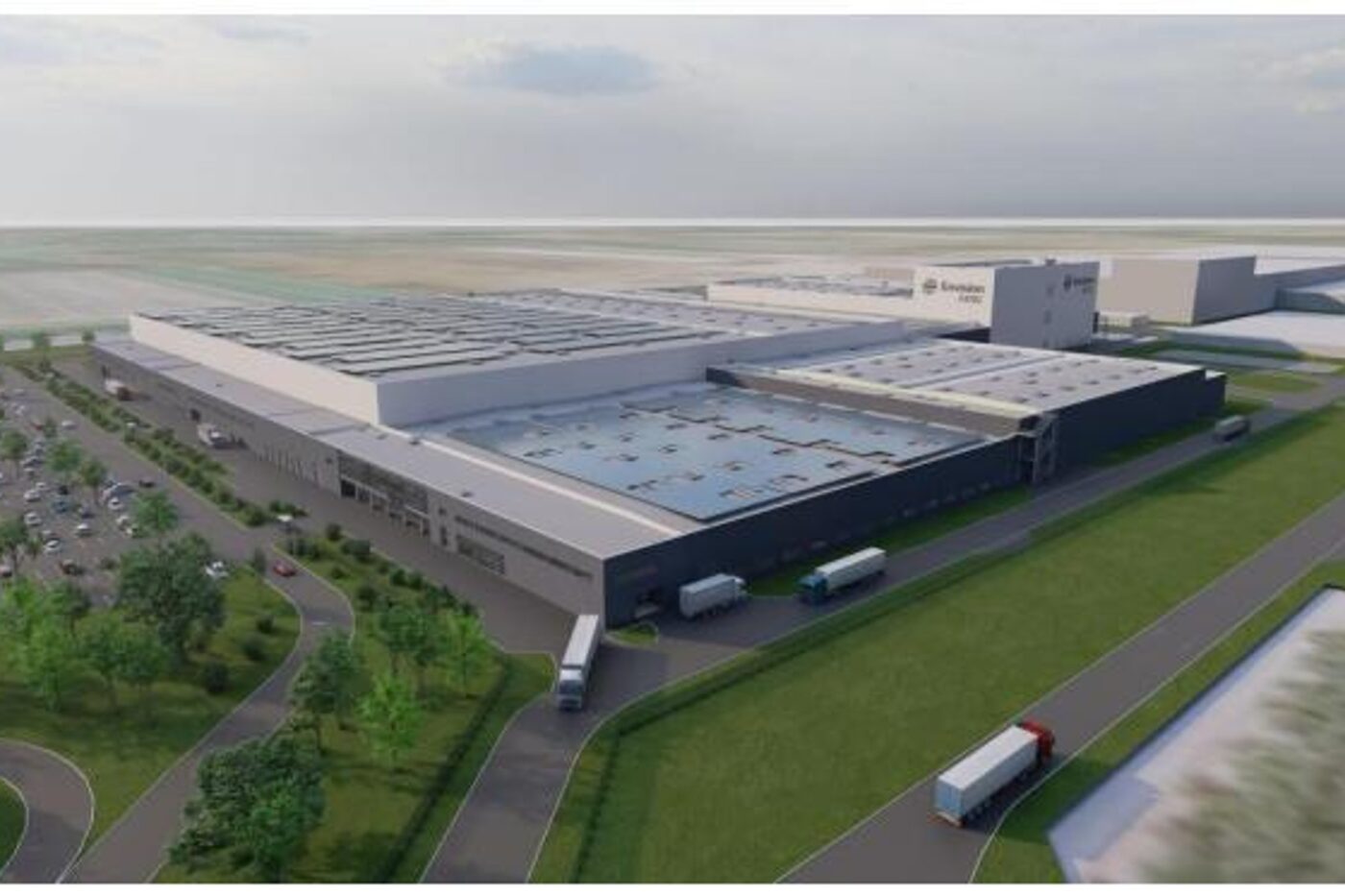EIB grants AESC funds for battery factory in France
Specifically, the European Investment Bank (EIB) is providing €450 million in aid to the Japan-based company for its factory in France: €337.2 million will be paid as a direct loan and a further €112.8 million in the form of indirect loans to participating commercial banks. According to an accompanying press release, this financing will be used to realise the first phase of the plant. Initially, AESC plans to produce battery cells with an annual capacity of 9 GWh for Renault from 2025. Thereafter, the factory is planned to expand gradually, up to “24-30 GWh in 2030”.
According to Matsumoto Shoichi, CEO of the AESC Group, the construction of this Gigafactory contributes to the European will to decarbonise the territory, thanks to crucial funding from the European Investment Bank. “This includes the creation of new jobs with high added value and access to our cutting-edge technology. We are also proud to be able to promote clean mobility by making batteries and electric vehicles affordable.”
Originally, ASEC wanted to realise a factory with a capacity of 43 GWh in Douai by 2030, but cut these plans at the end of 2021. Since then, there has been talk of 30 GWh or more by 2029. As the EIB communication now shows, it is now slightly less again with 24 to 30 GWh in 2030. The initial downsizing followed the decision to build the plant on a car park next to Renault’s Douai assembly plant instead of in a wooded area, according to project manager Ayumi Kurose at the time.
The EIB now says the major project will require an investment of 1.3 billion euros. The 450 million euros in loans from the EIB will therefore cover a good third. The bank also specifies that the batteries produced in Douai will be used primarily for the future Renault R5 and 4Ever electric models. However, the press release also states: “The future phases of this gigafactory will be able to supply Renault as well as other automotive and industrial manufacturers with electric batteries in the future.” So it remains a multi-customer strategy on the part of AESC.
The battery factory in Douai is part of the Renault ElectriCity eMobility industrial cluster announced in 2021. The umbrella company will bundle the electric car activities of Renault’s Douai, Maubeuge and Ruitz plants in northern France and build 400,000 vehicles per year from 2025. From the Douai battery plant, Renault plans to source NMC cells with a more “affordable” cell chemistry for the volume vehicles. Performance cells will continue to be supplied by long-time battery partner LG Energy Solution. Renault has also entered into a partnership with French startup Verkor, from which the carmaker plans to source up to ten GWh of high-performance cells (probably mainly for the electric Alpine models).
The AESC group has its headquarters in Japan and was founded in 2007 as a joint venture of three Japanese companies. Since the focus of the ‘Automotive Energy Supply Company’ (AESC) was on electric vehicles from the beginning, Nissan was the largest shareholder with 51 percent. In 2018, however, the Chinese company Envision took over the majority of AESC, which was also reflected in the official company name Envision AESC.
Earlier this year, the company reverted to its original name, AESC, “to reaffirm its commitment to its core values and dedication to precision engineering and Japanese excellence”, according to a recent statement from AESC in response to a query from electrive. It was felt that the new name “best embodies” its commitment to the future of green energy worldwide. However, the shareholder structure has not changed, and the Chinese company Envision is still the majority shareholder.





0 Comments